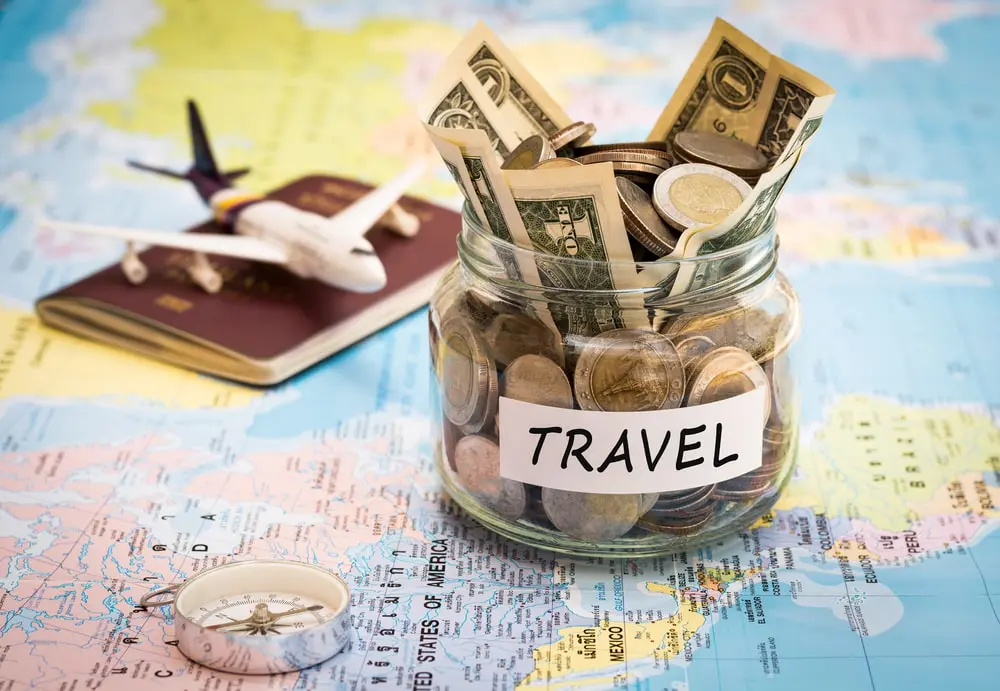
Traveling in your twenties is an exciting experience, offering the chance to explore new places, meet interesting people, and make lifelong memories. However, with student loans, rent, and other financial obligations, it can feel like travel is out of reach for many young adults. The good news? Traveling doesn’t have to be expensive! With the right planning and strategies, you can have incredible adventures while sticking to a budget. Here are some affordable travel tips to help you see the world without breaking the bank.
1. Be Flexible with Your Dates and Destinations
One of the best ways to save on travel is to be open to different travel dates and destinations. Many travel deals depend on the time of year and the demand for flights or accommodations. Flying on weekdays or during off-peak seasons can save you hundreds of dollars. Use tools like Google Flights or Skyscanner to compare prices over a month or year, so you can identify the cheapest time to fly to your desired destination.
In addition, consider traveling to less popular tourist destinations. While Paris, Tokyo, or New York may be high on your list, there are many equally exciting but more affordable destinations to explore, such as Eastern Europe, Southeast Asia, or Central America.
2. Take Advantage of Budget Airlines
Budget airlines can offer incredibly low fares, especially if you book well in advance or are flexible with your flight times. Carriers like Ryanair, EasyJet, and Spirit often have sales with flights as low as $20-$50 for a one-way trip. However, it’s essential to read the fine print—budget airlines make up for the low ticket prices with extra fees for things like luggage, seat selection, and food. Stick to just a carry-on bag (which is usually free), and be prepared for the no-frills experience.
3. Stay in Hostels, Homestays, or Affordable Alternatives
When traveling on a budget, accommodations can quickly eat into your funds. Instead of splurging on hotels, consider cheaper alternatives like hostels, homestays, or budget-friendly vacation rentals. Hostels, especially in Europe and Asia, offer affordable dorm-style rooms, and many now provide private rooms at a fraction of the cost of a hotel.
For a more local experience, platforms like Airbnb or Couchsurfing allow you to stay in a home, often for a lower cost than traditional hotels. Couchsurfing, in particular, connects you with hosts who offer their homes for free in exchange for cultural exchange, making it an affordable and enriching way to experience new places.
4. Use Public Transportation or Walk
Once you arrive at your destination, avoid the temptation to hail a cab or rent a car. Most cities have excellent public transportation systems, from buses and trams to subway networks. Public transit not only saves you money but also immerses you in the daily life of the locals. In many cities, you can purchase multi-day passes that allow for unlimited rides on public transit, which can be more cost-effective than individual tickets.
Another tip? Walk whenever possible. Exploring on foot allows you to truly experience the city and discover hidden gems, all while saving on transportation costs. Apps like Google Maps or Citymapper can help you navigate your way around unfamiliar streets with ease.
5. Eat Like a Local
Dining out can be one of the biggest expenses while traveling, but you can cut costs by skipping the fancy restaurants and eating like a local. Street food, food markets, and local eateries are often much cheaper than sit-down restaurants, and they give you an authentic taste of the destination.
If you’re staying in a hostel or vacation rental with a kitchen, consider cooking some of your meals. Shopping at local grocery stores or markets for fresh ingredients can save you a lot of money. Plus, it’s a fun way to learn about the local culture through its cuisine.
6. Look for Free Activities and Attractions
Many cities offer free or low-cost activities and attractions that allow you to experience the culture without spending a fortune. Museums, parks, and historical sites often have free admission days or discounts for students and young travelers. In some cities, you can find free walking tours, where guides take you through the city in exchange for tips.
Also, check out events calendars for festivals, street performances, and cultural activities happening during your stay. These often provide unique, free entertainment, giving you a more authentic experience.
7. Utilize Travel Rewards and Loyalty Programs
One of the smartest ways to save on travel is by taking advantage of travel rewards and loyalty programs. Many credit cards offer travel points, miles, or cashback for purchases. If you frequently fly or stay in hotels, sign up for airline or hotel loyalty programs to earn points that can be redeemed for future trips.
Some of the best travel reward cards offer generous sign-up bonuses, which can often cover flights or hotel stays. However, make sure to pay off your credit card balance in full each month to avoid high-interest charges.
8. Travel with Friends to Split Costs
Traveling with friends or in a group can significantly reduce your costs. You can split the cost of accommodations, transportation, and meals, making it easier to stick to your budget. Group travel also means you can take advantage of discounts for larger groups, such as group tours or shared accommodations.
Additionally, sharing experiences with friends can enhance the trip, as you’ll have someone to reminisce with about your adventures long after your travels are over.
9. Pack Light to Avoid Extra Fees
One of the easiest ways to overspend while traveling is by packing too much and paying for extra luggage. Airlines, especially budget carriers, often charge high fees for checked bags, so aim to pack light and stick to a carry-on.
To make this easier, invest in a good quality travel backpack that fits within most airline carry-on limits. Be strategic with your packing—bring versatile clothing that you can mix and match, and avoid overpacking items like shoes or bulky jackets that take up a lot of space.
10. Set a Travel Budget and Stick to It
Lastly, perhaps the most important of all affordable travel tips is to set a travel budget before your trip and do your best to stick to it. Research the average costs for food, transportation, and activities in your destination and allocate a certain amount for each expense.
By tracking your spending throughout your trip, you can avoid overspending and ensure that you’re making the most of your travel experience without depleting your bank account.
Final Thoughts
Traveling doesn’t have to be expensive, especially if you follow these affordable travel tips. With a bit of planning, flexibility, and creativity, you can explore new destinations, experience different cultures, and make unforgettable memories—all without breaking the bank.
Now that you’re equipped with these money-saving strategies, it’s time to plan your next adventure! What’s stopping you? Start by choosing a destination, set a budget, and get ready to embark on the journey of a lifetime without draining your wallet.
Ready to travel affordably? Subscribe to our blog, and let us know your dream destination in the comments!
